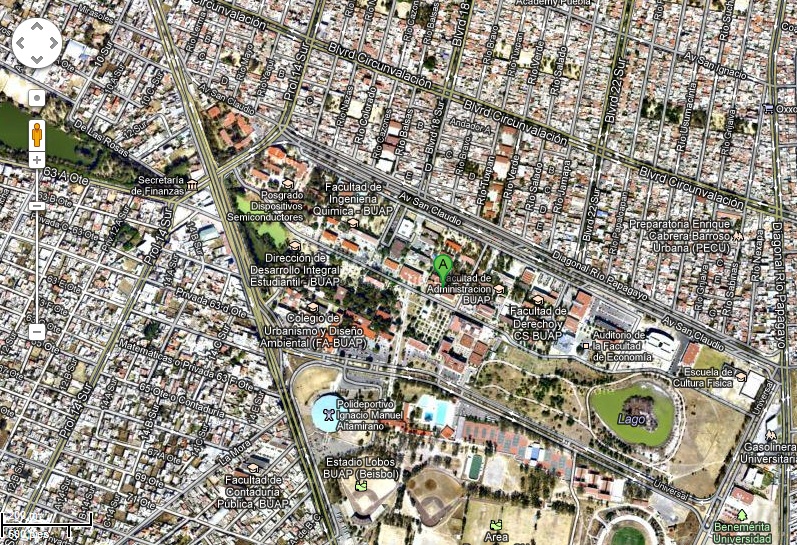AMW 2013 School (May 19 - 20, Puebla/Cholula, Mexico)
For 2013, AMW is going to host the first edition of AMW School, a two day event dedicated to tutorials and a panel for database students.
Tutorialists
- Reinhard Pichler (Vienna University of Technology)
- Magdalena Ortiz (Vienna University of Technology)
- Mauricio Osorio (Universidad de Las Americas Puebla, Mexico)
- Ana Carolina Salgado (Universidade Federale de Pernambuco, Brazil)
Tutorials
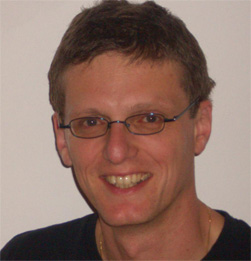
|
Reinhard Pichler |
SHORT BIO
Reinhard Pichler holds a master's degree in Mathematics from the University of Innsbruck and a master's degree in Mathematical Computation from the University of London, QMW College. In 2000, he received his PhD in Computer Science from the Vienna University of Technology. From 1992 to 2005, he worked as software developer at the Program and Systems Engineering Department (PSE) of the Siemens AG Austria. Since 2005, he has been a Professor at the Information Systems Institute of the Vienna University of Technology where he leads the Database and Artificial Intelligence group.
TITLE: Optimization of Semantic Web Queries
ABSTRACT
The Semantic Web is the initiative of the World Wide Web Consortium (W3C) to make information on the Web readable not only by
humans but also by machines. Two fundamental standards released by the W3C are the Resource Description Framework (RDF) as the standard data model for the Semantic Web and SPARQL as the standard query language for RDF data. A systematic investigation into the optimization of SPARQL queries has been missing so far. In this talk we report on some foundational research in this direction. Three crucial ingredients of query optimization are presented:
- An appropriate data structure (which we refer to as pattern trees) which allows for a simplified representation of an important class of SPARQL queries. Since pattern trees have a natural operational semantics, we may consider them as Query Execution Plans (QEPs).
- Transformation rules which allow us to transform the pattern trees. We can thus aim at the transformation of patterns trees to obtain better QEPs. Moreover, we may use these transformation rules to define normal forms of pattern trees.
- The study of basic computational problems such as containment and equivalence, which are at the heart of query optimization of any query language.
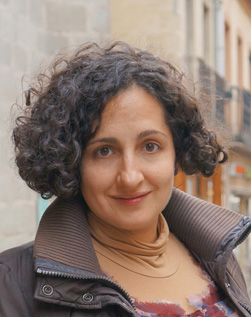
|
Magdalena Ortiz |
SHORT BIO
Magdalena Ortiz is a post-doctoral researcher at the Institute for Information Systems of the Vienna university of Technology, where she obtained her doctoral degree in 2010. Since January 2012 she is the principal investigator of the research project Recursive Queries over Semantically Enriched Data Repositories (T515-FWF) in the same institute. In 2006 she completed the European Master's Program in Computational Logic after studying at TU Wien and the Free University of Bolzano. Her main research interests are Description Logics, languages for Knowledge Representation and Reasoning, and the computational complexity of inference in these languages. Magdalena has received several research awards including the Award of Excellence of the Austrian Federal Ministry for Science and Research, best thesis awards from the Austrian Computer Society, the Austrian Society for Artificial Intelligence and the Joint Consortium of the European Masters in Computational Logic, and the Google Anita Borg Memorial Scholarship. Magdalena grew up in Puebla, Mexico, where she studied Computer Science and obtained a Masters degree in 2004.
TITLE: Reasoning and Query Answering in Description Logics
ABSTRACT
Description Logics (DLs) play a central role as formalisms for representing ontologies and reasoning about them. They are the logical underpinning of the OWL languages for the Semantic Web, and are increasingly employed in many application areas. This lecture will introduce the basics of DLs. We will discuss the knowledge modeling capabilities of some of the most prominent DLs and present some classic DL reasoning services, like classification, consistency, and instance checking. In the second part of the lecture we will approach the use of DL ontologies for data access, and introduce the increasingly popular framework in which data repositories are queried through DL ontologies. We will discuss the main challenges that arise in this setting and describe some query answering techniques.
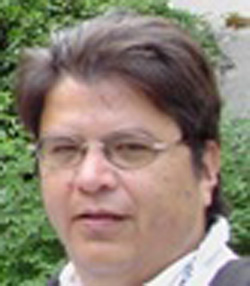
|
Mauricio Osorio |
TITLE: Answer set programming and databases.
ABSTRACT
Answer Set Programming (ASP) is a well known paradigm of logic programming based on the Answer Set semantics. This means that each solution to a given problem is represented by an Answer Set of a deductive database logic program encoding the problem itself. It has a strong relation to deductive databases as well as to knowledge bases. ASP languages can be considered, in the spirit of Datalog, as mechanisms for characterizing intensional (output) predicates in terms of extensional (input) predicates. In this tutorial we will first present briefly the theoretical foundations of ASP. Then it also introduces ASP's solving technology, modeling language and methodology, while practically illustrating the overall solving process by examples.
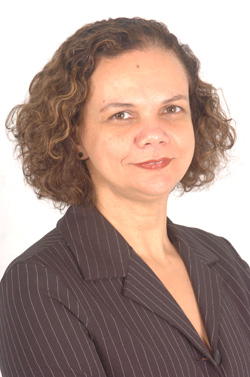
|
Ana Carolina Salgado |
SHORT BIO
Ana Carolina Salgado is currently an Associate Professor at Center for Informatics of Universidade Federal de Pernambuco – UFPE – (Brazil). She obtained her Doctorate in Computer Science from the University of Nice (France) in 1988, her Master (1983) and her Bachelor degree (1980) in Computer Science from UFPE. Her main research interests are in the areas of databases, information integration on the Web and context-aware systems. Dr. Salgado has published over hundred technical articles in conference proceedings and journals. In her academic activities she has advised 43 MSc and 12 PhD theses. She is member of the ACM and the Brazilian Computer Society. She also was head of Center for Informatics and coordinator of the Computer Science undergraduate course at UFPE.
Bernadette Farias Loscio is currently an Assistant Professor at Center for Informatics of Federal University of Pernambuco – CIn/UFPE – (Brazil). She obtained her Doctorate in Computer Science from the University Federal of Pernambuco in 2003, her Master and Bachelor degree in Computer Science as well from Federal University of Ceará (1998) and State University of Ceara (1995), respectively. Her research interests are in Databases focusing on information integration, semantic web and open government data. She has given numerous invited talks and tutorials, and has published several technical articles in such areas.
TITLE: Data Integration Systems and the Semantic Web
ABSTRACT
The increasing use of computers and the development of communication infrastructures have led to a demand for high-level integration of autonomous and heterogeneous data sources. In a similar way, this has motivated the development of diverse data integration environments, including Mediator-based Data Integration Systems, Peer Data Management Systems (PDMS), Dataspaces, Data Sharing Systems and, more recently, Linked Data Integration applications. In a general way, data integration solutions were proposed as tools that aim to offer a uniform access to distributed and heterogeneous data sources, in such a way that users may submit queries over an integrated view without having to know details about the data sources. While the mentioned data integration settings differ with respect to their level of coupling, all of them have in common the need of dealing with diverse levels of heterogeneity among the data sources to be integrated, including structural, syntactic and semantic heterogeneity. In order to deal with such challenge, a common and flexible data model is required to represent the diverse data sources as well as the integrated data. Besides, a common query language and vocabularies to describe the knowledge domain are also essential. In this context, Semantic Web offers a set of technologies that may facilitate the development of data integration solutions. Specifically, the main related issues are: the use of ontologies to represent the source schemas or to represent the knowledge domain (background knowledge), the use of RDF as a flexible model to represent data, the SPARQL language as the common query language, and the principles of Linked Data to facilitate the data sharing and integration. In this tutorial, we will cover the main concepts and architectures of data integration systems as well as the main aspect of the Semantic Web relevant for data integration.
Program AMW School
Sunday 19:
- 10:00 - 13:00 hrs. Mauricio Osorio: "Answer set programming and databases"
- 15:00 - 17:00 hrs. Reinhard Pichler: "Optimization of Semantic Web Queries"
Monday 20:
- 10:00 - 13:00 hrs. Ana Carolina Salgado: "Data integration systems and the Semantic Web"
- 15:00 - 18:00 hrs. Magdalena Ortiz: "Reasoning and Query Answering in Description Logics"
Venue
Facultad de Ciencias Fisico Matematicas, Benemerita Universidad Autonoma de Puebla (BUAP).Corner of Avenida San Claudio and 18 Sur, Colonia San Manuel
Edificio (building) 111B, Planta baja (ground floor), 101 (Laboratory) and 303, Ciudad Universitaria, Puebla (NEW)
A map of the Facultad de Ciencias Físico Matemáticas "FCFM - BUAP" is aviable here:
